
Heeding to the general’s calls, the Trump administration deployed an additional 5,000 troops to provide training for Afghan forces, help counter Islamic State and in the longer run to pressure the Taliban into a negotiated settlement. But the impact of the troop addition on curbing the Taliban’s narco-insurgency is largely uncertain and remains unaddressed.
In a country that has no viable alternative legal economy, poppy farming ensures a decent living for the impoverished farming communities and steady tax revenue for the Taliban. As much as 90% of the world’s heroin production comes from poppy cultivated in Afghanistan, and it’s getting worse. According to the United Nations Office on Drugs and Crime figures, in 2016, there was a 45% jump in Afghan poppy cultivation and a 10% increase in land cultivated. This comes as no surprise as conservative estimates suggest the Taliban have partial or full control over half the country. The heightened insurgency and the Taliban’s greater territorial control are resulting in unprecedented growth of opium production, making it an insurmountable challenge for the American military.
American efforts to tackle the narco-insurgency have been characteristic of its wider policies in Afghanistan by being costly and ineffective. Since the US invasion, $7.6 billion have been spent on a series of incoherent and unsuccessful counternarcotic strategies. The initial policy of eradication was seen to be counterproductive as this drove the aggrieved farmers closer to the Taliban. Other efforts include disbursing financial rewards to provincial governors for showing reduction in poppy growth and providing agriculture assistance to encourage farming of traditional crops, including wheat and cotton. More notably, again for all the wrong reasons, $34 million were spent on soybean cultivation, a produce never before grown or consumed in Afghanistan. Multiple failures in curbing poppy cultivation have invariably aided the narco-insurgency.
American policies have at times been complacent and benefited the drug trade. The US military has over the years relied heavily on Afghan warlords’ support in tracking down Osama bin Laden and more recently, providing security for Nato supply convoys. In the process, the warlords’ links to illicit narcotics trade have been overlooked in perusal of larger strategic objectives.
But counternarcotic efforts in Afghanistan have not always resulted in a series of utter failures. Prior to the US invasion in 2001, the then Taliban regime imposed a blanket ban on opium growth, resulting in a remarkable near-all reduction of poppy crop, all in a single season. By doing what they do best, Taliban leader Mullah Omar issued a fatwa (religious edict) against growing poppy, calling it un-Islamic. And those found to be defying the ban were severely punished. Effectively, Afghanistan was opium free.
The immensely successful campaign to eradicate opium was delivered at a financial cost to the Taliban regime, since it resulted in losing a vital stream of tax revenue of tens of millions of dollars from illicit drug trade. With such evident losses, why then would the Taliban enforce the ban with such conviction?
A plausible suggestion can be that the ban was largely an effort by the Taliban regime to garner international legitimacy. However, the sheer scale of the endeavour carried out domestically and with no international assistance received little praise from the international community. And then 9/11 happened.
Amidst a looming threat of an American invasion, the Taliban were ready to abandon the poppy ban in case of a US military attack. Subsequently, Operation Enduring Freedom was launched in October 2001, at the heart of the traditional poppy planting season. The Taliban regime was dismantled and the farmers were once again free to grow opium poppy, sending crop cultivation soaring 89% from 8,000 to 74,000 hectares, in a single year.
Since then, the Taliban have regrouped to challenge American presence as well as the Afghan coalition government. The Taliban’s greater territorial control and the subsequent increase in poppy cultivation have ultimately resulted in regions with higher poppy yields to be more resistive to the US and Afghan military intervention. Territorial expansion and revenue from illicit drug trade have allowed the Taliban to push their insurgency to exceedingly new levels, thus challenging American military resolve. The ‘stalemate’ in Afghanistan is evidentiary that the only plausible resolve is through a political settlement and the troop surge, among other objectives, hopes to push the Taliban to the negotiating table.
In striving for a political settlement through negotiations, what potentially could American demands entail?
America would naturally look for guarantees to ensure that its nation-building initiatives and institutions not be upended. But the terms should not just be limited to upholding what America deems its achievements, but rather address its failures as well. Keeping in perspective America’s abysmal performance in tackling opium growth, it should work with the Taliban by offering adequate international assistance and legitimacy towards opium eradication policies.
And if all else fails, perhaps America’s last prayer for an opium-free Afghanistan would be to negotiate with the Taliban to re-issue a fatwa against growing opium.
Published in The Express Tribune, January 6th, 2018.
Like Opinion & Editorial on Facebook, follow @ETOpEd on Twitter to receive all updates on all our daily pieces.
1736541297-0/Untitled-design-(59)1736541297-0-405x300.webp)



1727142053-0/Jacob-Erodi-(3)1727142053-0-165x106.webp)


1729685382-0/Untitled-design-(57)1729685382-0-270x192.webp)

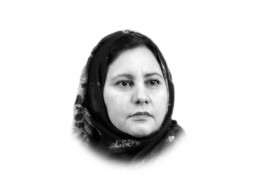

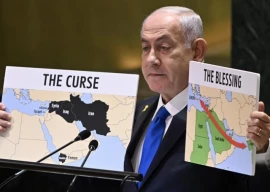

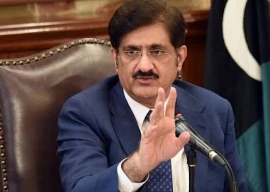

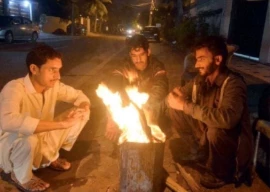
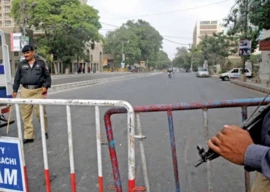



COMMENTS (1)
Comments are moderated and generally will be posted if they are on-topic and not abusive.
For more information, please see our Comments FAQ